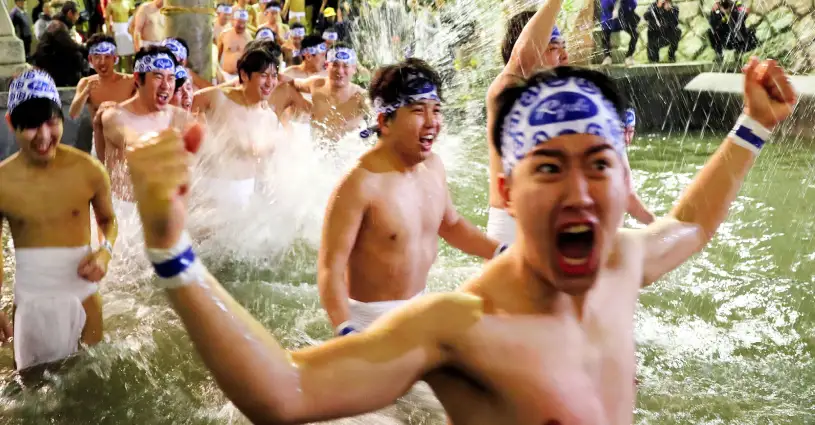In a historic decision, women of Japan on Wednesday were given a green signal to participate in the country's historic 'Naked Man' festival. It will be the first in the festival's 1250-year history that women are allowed to take part in Japan's Naked Man festival. However, there are certain terms and conditions women need to follow if they are thinking of participating in the Japan Naked Man Fest. Below is what is Japan's Naked Festival, Japan Naked Man fest women's terms and conditions & everything you need to know-
What is the Naked Man Festival?
As per Japanese media reports, every February, thousands of men dressed in next to nothing take part in the Hadaka Matsuri at a Shinto shrine in Inazawa, a town in central Japan, to drive away evil spirits over the coming year. The festival has been regarded as off-limits to women since it was first held in the town about 1,250 years ago, but organisers will allow a group of about 40 women to take part on 22 February. Japan Naked Man Festival is also known as Hadaka Matsuri.
Talking about Japan Naked Man festival's terms & conditions for women, they will be fully clothed and will make ritual offerings of bamboo grass but will not be part of the festival’s momiai climax, in which men dressed only in fundoshi – a type of traditional loincloth – tabi socks and hachimaki bandanas clash with each other as they attempt to transfer their bad luck to a 'chosen man' by touching him before he is withdrawn to the safety of the shrine.
For those wondering what happens in Japan's naked man fest, thousands of males wear minimal amount of clothing with most of them using a Japanese loincloth called ''fundoshi'' along with a pair of white socks. As a part of the rituals of the festival, men spend the initial hours running around temple grounds and purifying themselves with freezing cold water and then head towards the main temple.
Mitsugu Katayama, an official of the organising committee was quoted saying that the festival holds great significance. ''We have not been able to hold the festival like we used to for the past three years because of the pandemic and, in the time, we received a lot of requests from women in the town to take part.''
